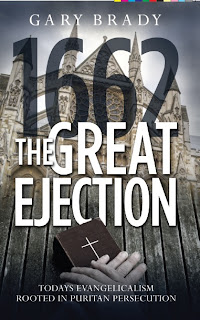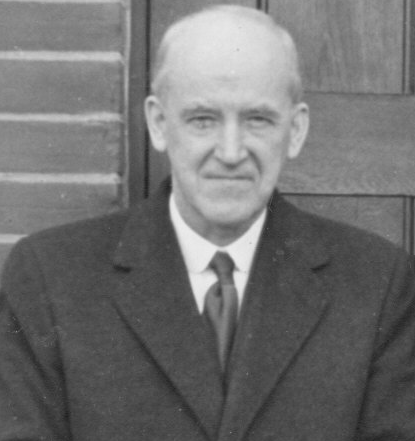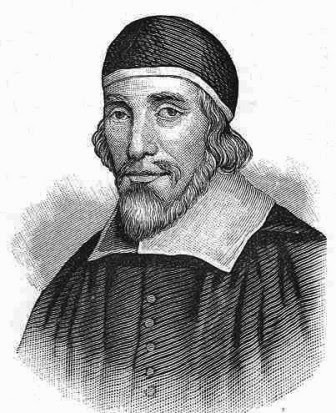1- Edmund Calamy - Sermon from 2nd Samuel 24:14 "Let us Fall into the Hand of the Lord"
2- Thomas Manton - Sermon from Hebrews 12:1 - "The people of God that have such a multitude of examples of holy men and women set before them, should prepare themselves to run the spiritual race with more patience and cheerfulness."
3- Joseph Caryl - Sermon from Revelation 3:4 - "In which encouragement I told you we might consider two things, or take it into two parts. First, " That they should walk with Christ." Secondly, " They should walk in white."
4- Thomas Case - Sermon on Revelation 2:5 - "CHRIST here prescribes precious physic for the healing of this languishing church of Ephesus; it is compounded of a threefold ingredient: 1. Self-reflection, " Remember from," &c. 2. Holy contrition and humiliation before the Lord, " Repent." 3. Thorough reformation, " Do thy first works."
5- William Jenkyn - Morning Sermon on Hebrews 11:38 - "The apostle in this excellent chapter, (that by some is deservedly called a little book of martyrs) discovers the triumph of faith, or victory against all difficulty we meet with."
6- William Jenkyn - Afternoon Sermon on Exodus 3:2-5 - "First then, for explanation, I shall here endeavour to open these two things to you: first, what it is for a place to be holy, or wherein the nature of the holiness of the places consists ; secondly, what that is, that is the foundation or cause of the holiness of places; and both these must in our discourse, and likewise apprehension, be accurately distinguished."
7- Richard Baxter - Sermon on Colossians 2:6,7 - "Omitting the division, and in part the opening of the words, the observation is ; - " That those that have received Christ Jesus the Lord, must accordingly be rooted, built Up in him, and established in the faith; and walk in him as they have been taught, and abound therein with thanksgiving."
8- Thomas Jacombe - Morning Sermon on John 8:29 - The observation I intend to speak to, shall be this: They that please God, and endeavour always to do the things that please God, such God will be with; such the Father will not leave alone; especially in times of suffering and trouble, for I will bring it to that case.
9- Thomas Jacombe - Afternoon Sermon on John 8:29 - Let me endeavour to prevail with every one of you, so to carry yourselves in your several places and capacities, that whatever you do, you may please God.
10- William Bates - Morning Sermon on Hebrews 12:20,21 - Now in these two verses he sums up, by way of recapitulation, all that which he had discoursed of at large, and in them you may observe these two things. 1. A description of God, to whom he addresses this prayer: The God of Peace. 2. The substance of the prayer itself.
11- William Bates - Afternoon Sermon on Hebrews 12:20,21 - It follows " that great Shepherd of the sheep." For the opening of this, 1. We will consider the title of Christ. 2. The person for whom this title relates.
12- Thomas Watson - Morning Sermon on John 13:34 - Doctrine. Christians ought to make conscience of this duty of loving one another. Confident I am, we shall never see religion thrive in the world, until we see this grace of love flourish in the heart of christians.
13- Thomas Watson - Afternoon Sermon on 2 Corinthians 7:1 - It is the title that I intend now, by the help of God, to insist upon, that sweet parenthesis in the text, "dearly beloved," wherein you have the apostle breathing forth his affections unto this people. He speaks now as a pastor, and he speaks to them as his spiritual children.
14- Thomas Watson - Farewell Sermon on Isaiah 3:10,11 - This text is like Israel's pillar or cloud; it hath a light side, and a dark side: it hath a light side unto the godly, "Say unto the righteous, it shall be well with him;" and it hath a dark side unto the wicked, "Woe unto the wicked, it shall be ill with him." Both you see are rewarded, righteous and wicked; but here is a vast difference, the one hath a reward of mercy, the other a reward of j ustice.
15- Thomas Lye - First Sermon on Philippians 4:1 - I shall without any more ado enter upon the text; in which you have two things considerable. A most melting compellation, and a most serious exhortation. 1. A melting compellation, "my brethren, dearly beloved," &c. 2. A serious exhortation; and in it first, the matter of the duty, stand, and stand it out, and stand fast. Secondly, the manner. First, so stand, so as you have stood, stand fast. Second, in the Lord; stand so, and stand in the Lord, in the Lord's strength, and in the Lord's cause.
16- Thomas Lye - Second Sermon on Philippians 4:1 - "It is the grand and indispepsable duty of all sincere saints, in the most black and shaking seasons, to stand fast fixed and stedfast in the Lord."
17- Matthew Mead - Sermon on 1 Corinthians 1:3 - Being therefore now to part, I thought to go to the top of the mount, and leave with you grace and peace from God our Father, and from our Lord Jesus Christ. In which words there are two generals. 1. A double blessing desired: Grace and Peace 2. A double spring discovered: that is the Father and the Son, God and Christ.
18- Matthew Newcomen - Sermon on Revelation 3:3 - There are three doctrines obvious in the text; Doctrine 1. That it is the duty of christians, to remember those truths that they have heard and received. Doctrine 2. That it is the duty of christians to hold fast the truth that they have heard and received. Doctrine 3. That continued repentance is the duty of christians, as well as initial repentance. Remember therefore how thou hast received, and heard, and hold fast and repent.
19- Thomas Brooks - Sermon on Questions Asked and Answered followed by 27 Legacies that Brooks Left to his Beloved People
20- John Collins - Sermon on Jude 3 - These words contain two parts. 1. A duty exhorted to. 2. The manner of the management of duty. The duty exhorted to, is, to retain the faith delivered to the saints. The manner of its management is, that we should earnestly contend to keep it.
21- Edmund Calamy - Sermons 1 Samuel 4:13 - I shall gather two observations from the words. 1. That when the ark of God is in danger of being lost, the people of God have thoughtful heads and trembling hearts. 2. That a true child of God is more troubled, and more solicitous what shall become of the ark, than what shall become of wife and children or estate.
22- John Gaspine - Sermon on Luke 12:32 - The text contains that exhortation of Christ, wherein he exhorts them to undauntedness and resolution in the ways of God. " Fear not, little flock, for it is your Father's good pleasure to give you the kingdom." The words may be divided into these two parts. First, Here is an exhortation: "Fear not, little flock." Secondly, The reason of this exhortation: "for it is your Father's good pleasure to give you the kingdom."
23- Lazarus Seaman - Sermon on Hebrews 13:20,21 - In which words, there are two two things considerable. 1. The matter of the apostle's prayer. 2. The grounds, which he doth insinuate for audience.
24- George Evanke - Sermon on Matthew 26:39 - Doct. A gracious soul will endeavour the crossing his own will, when be sees that it crosses God's. Or, thus, A true Christian dare not, at least ought not, to gratify his own humour when it stands in opposition, or cometh in competition with God's honour.


















.jpg/220px-Thomas_Watson_(Puritan).jpg)
